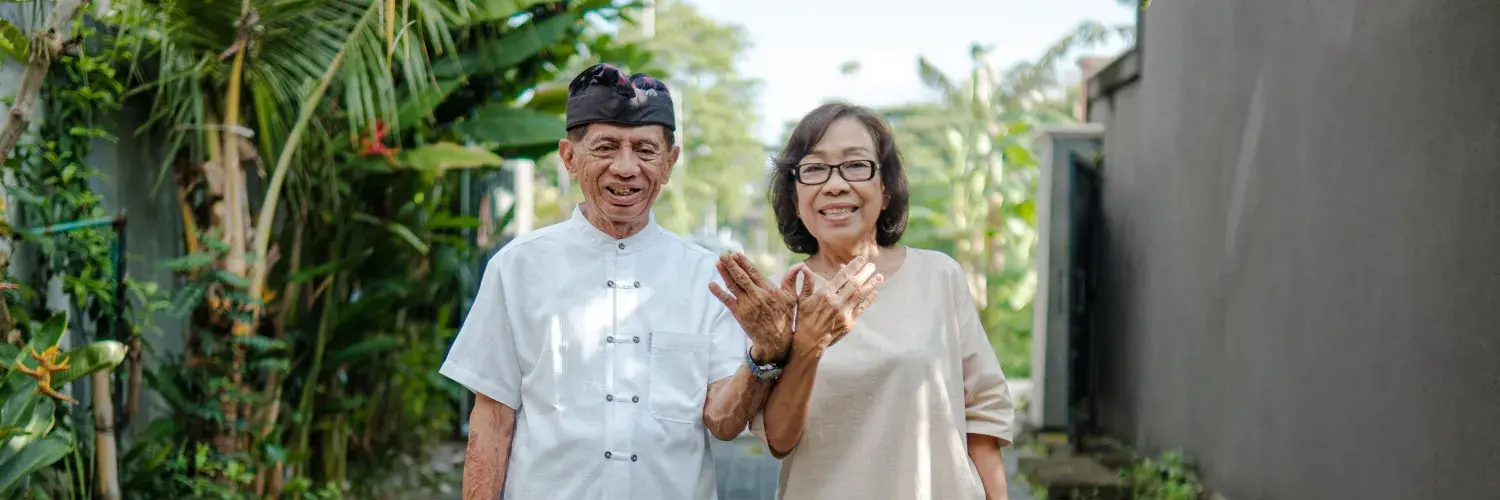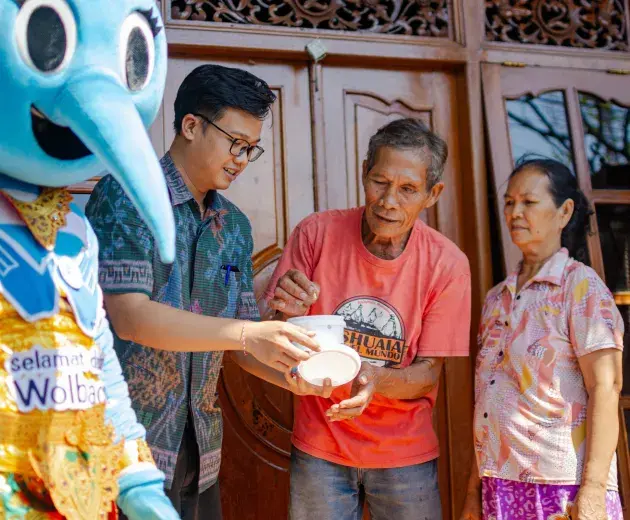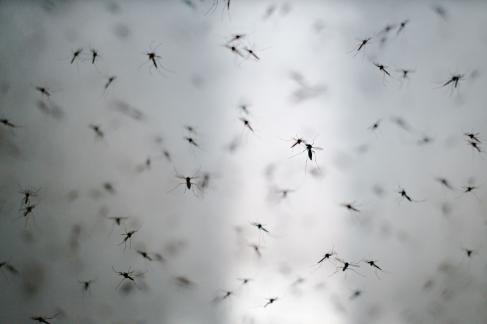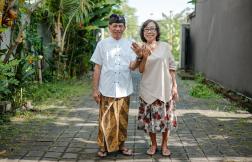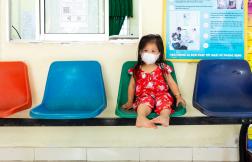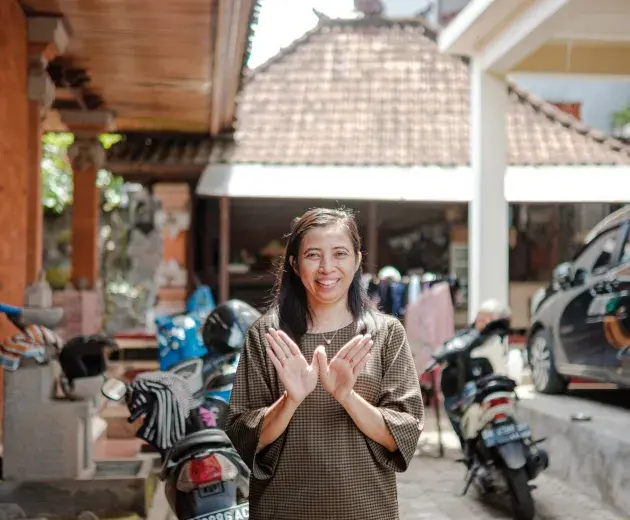The World Mosquito Program is working in Bali to protect communities from mosquito-borne diseases like dengue, chikungunya, Zika and yellow fever.
The country, made up of almost 17,000 islands, now carries the highest case burden in South East Asia. Bali is one of the country’s most affected provinces. During the large epidemics in 2010, 2015, and 2020, more than 10,000 people were hospitalised. In 2016, Bali’s largest recorded dengue outbreak, more than 20,000 people were admitted to hospital and 60 deaths were reported.
Pelajari selengkapnya mengenai program kami di Bali di sini
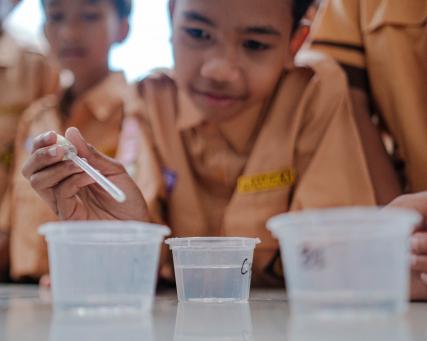

WMP has been working in Indonesia since 2014, protecting nearly two million people from dengue and other mosquito-borne diseases in Yogyakarta and across neighbouring Sleman and Bantul districts. The results of WMP’s 2018-2020 gold-standard trial in Yogyakarta provided conclusive evidence that WMP's Wolbachia works.
In 2023, the World Mosquito Program began work in both Denpasar and Buleleng, Bali, to combat the growing threat of mosquito-borne diseases. The World Mosquito Program (WMP) with the support of the Australian Government and the Gillespie Family Foundation, have joined forces to “dengue-proof” Bali by using WMP's Wolbachia solution.
Awareness raising about WMP's Wolbachia with the local communities and preparations for mosquito releases started in mid 2023.
Frequently Asked Questions
Visit our FAQs page to learn more about this innovative approach and its impact.
- 1What is Wolbachia?
Wolbachia is a naturally occuring bacteria that has evolved to live inside the cells of many insect species (and some worms). It has maintained this lifestyle for tens of thousands of years. Wolbachia cannot survive outside of insect cells because it does not have the necessary machinery to replicate itself without help from the insect host. This means Wolbachia cannot survive in the environment (e.g. the air or soil). Wolbachia is not a virus or a parasite. It is not a “gene drive”. Wolbachia has never been genetically modified by scientists.
- 2How can Wolbachia be used to control dengue?
The World Mosquito Program discovered that Wolbachia blocks viruses like dengue, chikungunya and Zika from growing in the bodies of Aedes aegypti mosquitoes. This means that Wolbachia mosquitoes have a reduced ability to transmit viruses to people. When Wolbachia is established in a mosquito population it results in a decreasing incidence of dengue, Zika, chikungunya.
When Wolbachia mosquitoes are released, they breed with wild mosquitoes until, over 6-12 months, Wolbachia mosquitoes replace the local mosquito population. Once Wolbachia is established in the population, it stays there for many years. This makes Wolbachia a safe, one-time intervention for protecting communities against dengue and other mosquito-borne diseases like chikungunya and Zika.
- 3Is Wolbachia safe?
Wolbachia has been present in insect populations for tens of thousands of years and there is no evidence it causes harm to humans or vertebrate animals. Wolbachia is extremely common, being found naturally in hundreds of thousands of insect species including butterflies, moths and many different mosquito species (but not the Aedes aegypti mosquito that transmits dengue). Some of the mosquito species that carry Wolbachia also bite humans e.g. the “common house mosquito” (Culex pipiens). Just about every person on the planet has been exposed to the bites of insects that carry Wolbachia, without evidence of it causing harm.
- 4Is Wolbachia a GMO?
Wolbachia, the natural bacteria from the common fruit fly, is introduced into the female Aedes aegypti mosquito. It is not considered a GMO technique because it does not involve genetic modification (GM) of the mosquito, or the Wolbachia. None of the Governments in the 14 countries (including Indonesia) where Wolbachia mosquitoes have been released have considered this to be a GMO technology.
- 5What’s the evidence to prove Wolbachia works in Indonesia?
In Indonesia, more than 1.5 million people in Yogyakarta Province live in areas where Wolbachia have been installed in the local Aedes aegypti population, some for as long as 10 years.
The Indonesian Ministry of Health (MoH) has evaluated the results of Wolbachia releases in Yogyakarta and decided there was enough evidence to scale up WMP’s Wolbachia method to help protect millions more people in Indonesia. The gold-standard randomised controlled trial showed a 77% reduction in dengue cases and 86% reduction in dengue hospitalisations in Wolbachia-treated areas compared with untreated areas.
The expansion is called the “5-City plan” and is led and funded by the MoH in collaboration with the municipalities of Semarang, Kupang, Bandung, West Jakarta and Bontang.

